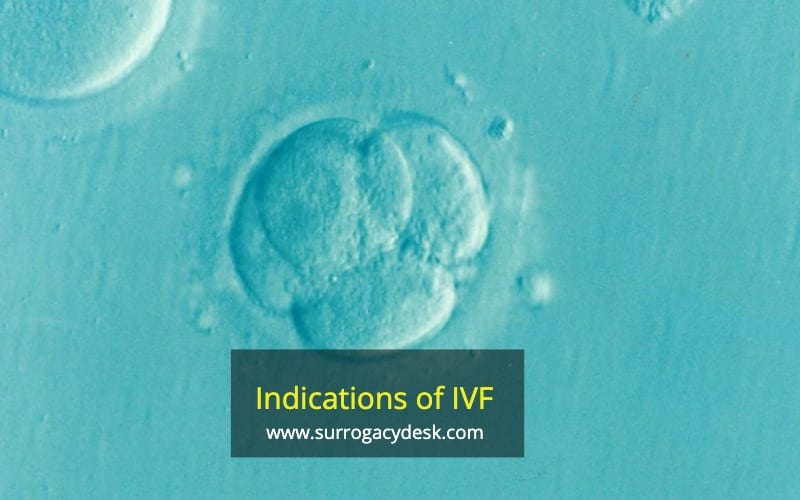Infertility indicates inability to conceive because of a problem in the reproductive system of one or both partners. It may be primary or secondary to any ailments. Primary infertility is when a person isn’t capable of conceiving at all. Secondary infertility is while a person has formerly conceived however is not capable of now. Infertility is a situation in which one can’t get pregnant after 12 months of looking to conceive. In women, the reason for infertility may be endometriosis, uterine fibroid and thyroid disease, blockage of fallopian tubes etc. Men with fertility issues may also have a low sperm count or low testosterone. The chances of fertility decreases with age.
What Is Infertility?
Healthcare providers consider a pair infertile if they are attempting however fail to get pregnant within the one year. When the female is older than 35, the amount of time trying to conceive drops to 6 months for an infertility diagnosis. In females over 40, instantaneous assessment is warranted. Infertility does now no longer consist of miscarrying or being not able to carry a child to childbirth.
What Are The Types Of Infertility?
- Primary Infertility: A female who has never been pregnant or who can’t conceive after 12 months of trying without the use of birth control method.
- Secondary Infertility: Secondary infertility takes place whilst a female can’t get pregnant once more after having as a minimum one a successful pregnancy.
What Are Risk Factors For Infertility?
- Age (over age 35 for females or over forty for men).
- Diabetes.
- Excessive alcohol use.
- Exposure to environmental toxins, consisting of lead and pesticides.
- Over-exercising.
- Radiation treatment or different cancer treatments.
- Sexually transmitted infections (STIs).
- Smoking.
- Stress.
- Weight problems (weight problems or underweight).
What are the causes of female infertility?
- Abnormal or irregular menstruation.
- Blocked fallopian tubes.
- Celiac disease.
- Kidney disease.
- Past ectopic (tubal) pregnancy.
- Pelvic inflammatory disease.
- Pituitary gland disorders, consisting of Cushing’s syndrome.
- Polycystic ovary syndrome (PCOS), ovarian cysts and number one ovarian insufficiency.
- Sickle cell anemia.
- Uterine problems, such as endometriosis, fibroids and polyps.
- Thyroid disease.
What causes Male infertility?
- Enlarged veins (Varicocele) in the scrotum, the sac that holds the testicles.
- Genetic disorders, including cystic fibrosis.
- High warmth exposure to testicles from tight clothing or common use of warm tubs and saunas.
- Injury to the scrotum or testicles.
- Low sperm count or low testosterone (hypogonadism).
- Misuse of anabolic steroids.
- Premature ejaculation or retrograde ejaculation (semen flows again into the bladder).
- Testicular cancers and treatments.
- Undescended testicles.
How Is Female Infertility Diagnosed?
Physicians report signs of ovulation, along with basal body temperature and cervical mucus. These assessments also can assist diagnose or rule out a woman fertility problem:
- Pelvic Exam: physician will carry out a pelvic exam, which includes a Pap smear to test for structural issues or signs of disease.
- Blood Test: A blood test checks the hormone levels, which include thyroid hormones.
- Transvaginal Ultrasound: The physician inserts an ultrasound wand into the vagina to search for issues with the reproductive system.
- Hysteroscopy: the physician inserts a thin, lighted tube (hysteroscope) into the vagina to observe the uterus.
- Saline Sonohysterogram (Sis): The physician fills the uterus with saline (sterilized salt water) and conducts a transvaginal ultrasound. A complete uterus makes it simpler to look within the uterus.
- Hysterosalpingogram (Hsg): X-rays capture an injectable dye because it travels through the fallopian tubes. This test appears for blockages.
- Laparoscopy: The physicians insert a laparoscope (thin tube with a camera) right into a small stomach incision. Female pelvic laparoscopy allows discovery of issues like endometriosis, uterine fibroids and scar tissue.
How Is Male Infertility Diagnosed?
- Semen Analysis: This takes a look at assessments for issues with sperm, together with low sperm count and poor mobility. Some men need a needle biopsy to get rid of sperm from the testicles and take a look at it. For maximum men, that is the most effective check with the intention to be wanted in the workup of infertility.
- Blood Test: A blood analysis can test testosterone, thyroid and different hormone levels. Genetic blood assessments search for chromosomal abnormalities.
- Scrotal Ultrasound: An ultrasound of the scrotum identifies Varicocele or different testicular issues.
- Ultrasound: This can also additionally monitor problems together with ejaculatory duct obstruction or retrograde ejaculation.
- Chlamydia Test: Chlamydia can have an effect on fertility, however antibiotics can treat it. However, antibiotics cannot Source any existing damage to fertility.
What Are Fertility Treatment Options For All Genders?
Some couples want extra help conceiving. To growth being pregnant odds, a female can also additionally first take medicines to stimulate ovulation earlier than attempting the sort of options:
Intrauterine Insemination (IUI): A physician makes use of a long, thin tube to place sperm directly into the uterus.
In Vitro Fertilization (IVF): In vitro fertilization is a form of assisted reproductive technology (ART). It includes harvesting the eggs on the end of the stimulation and placing sperm and eggs collectively in a lab dish. The sperm fertilize the eggs. Clinician transfers one of the fertilized eggs (embryo) into the uterus.
Intracytoplasmic Sperm Injection (ICSI): This method is much like IVF. An embryologist immediately injects a single sperm into each of the harvested eggs after which a clinician transfers an embryo into the uterus.
Third-Party ART: Couples can also additionally use donor eggs, donor sperm or donor embryos. Some couples want a gestational carrier or surrogate. This individual consents to carry and provide birth on baby.
How Is Female Infertility Treated?
Medications: Fertility drugs alternate hormone ranges to stimulate ovulation.
Surgery: Surgery can open blocked fallopian tubes and take away uterine fibroids and polyps. Surgical treatment of endometriosis doubles a woman’s possibilities of pregnancy.
How Is Male Infertility Treated?
Medications: Medications can increase testosterone or different hormone levels. There also are drugs for erectile dysfunction.
Surgery: Some men want surgical procedure to open blockages in the tubes that keep and carry sperm. Varicocele surgical procedure could make sperm healthier and may enhance the odds of conception.
How Can We Prevent Infertility?
Men and women can take those steps to protect their fertility, especially while looking to conceive:
- Eat a well-balanced diet and keep a healthful weight.
- Don’t smoke, misuse pills or drink excessively.
- Get dealt with for STDs.
- Limit exposure to toxins.
- Stay physically active, however don’t overdo exercise.









